Product Detail
Product NameRelB Rabbit mAb
Clone No.SD07-39
Host SpeciesRecombinant Rabbit
Clonality Monoclonal
PurificationProA affinity purified
ApplicationsWB, ICC/IF, IHC, IP
Species ReactivityHu
Immunogen Descrecombinant protein
ConjugateUnconjugated
Other NamesI REL antibody I-Rel antibody IREL antibody Nuclear factor of kappa light polypeptide gene enhancer in B cells 3 antibody relB antibody RELB_HUMAN antibody Reticuloendotheliosis viral oncogene homolog B antibody Transcription factor Rel B antibody Transcription factor RelB antibody v rel avian reticuloendotheliosis viral oncogene homolog B antibody v rel reticuloendotheliosis viral oncogene homolog B antibody
Accession NoSwiss-Prot#:Q01201
Uniprot
Q01201
Gene ID
5971;
Calculated MW62 kDa
Formulation1*TBS (pH7.4), 1%BSA, 40%Glycerol. Preservative: 0.05% Sodium Azide.
StorageStore at -20˚C
Application Details
WB: 1:1,000
IHC: 1:50-1:200
ICC: 1:50-1:200
Immunohistochemical analysis of paraffin-embedded human spleen tissue using anti-RelB antibody. Counter stained with hematoxylin.
Immunohistochemical analysis of paraffin-embedded human breast carcinoma tissue using anti-RelB antibody. Counter stained with hematoxylin.
ICC staining RelB in A549 cells (green). The nuclear counter stain is DAPI (blue). Cells were fixed in paraformaldehyde, permeabilised with 0.25% Triton X100/PBS.
ICC staining RelB in SW480 cells (green). The nuclear counter stain is DAPI (blue). Cells were fixed in paraformaldehyde, permeabilised with 0.25% Triton X100/PBS.
ICC staining RelB in MCF-7 cells (green). The nuclear counter stain is DAPI (blue). Cells were fixed in paraformaldehyde, permeabilised with 0.25% Triton X100/PBS.
The NFκB transcription factor was originally identified as a protein complex consisting of a DNA binding subunit and an associated protein. The DNA binding subunit is functionally related to c-Rel p75 and Rel B p68. The p50 subunit was initially believed to be a functionally unique protein derived from the amino terminus of a precursor designated p105. A second protein designated p52 (previously referred to as p49) has been identified that can act as an alternative NFκB subunit. Rel B does not bind with high affinity to NFkB sites, but heterodimers between Rel B and p50 bind with an affinity comparable to that of p50 NFκB homodimers. However, Rel B/p50 heterodimers, in contrast to NFκB heterodimers, transactivates transcription of promotors containing κB binding sites.
If you have published an article using product 49126, please notify us so that we can cite your literature.


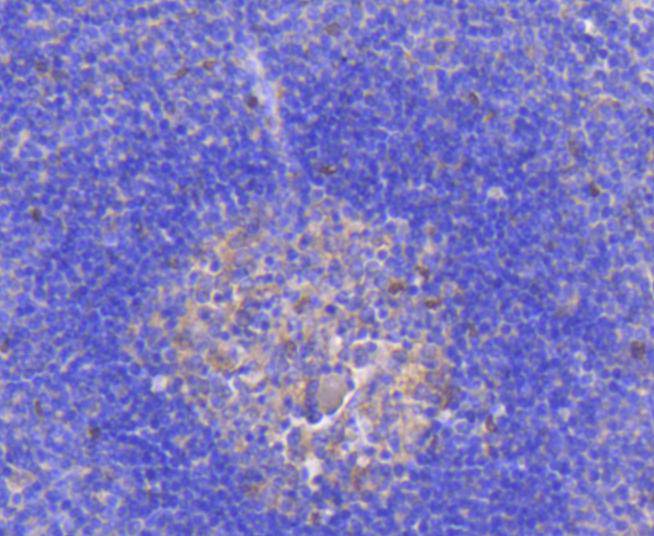
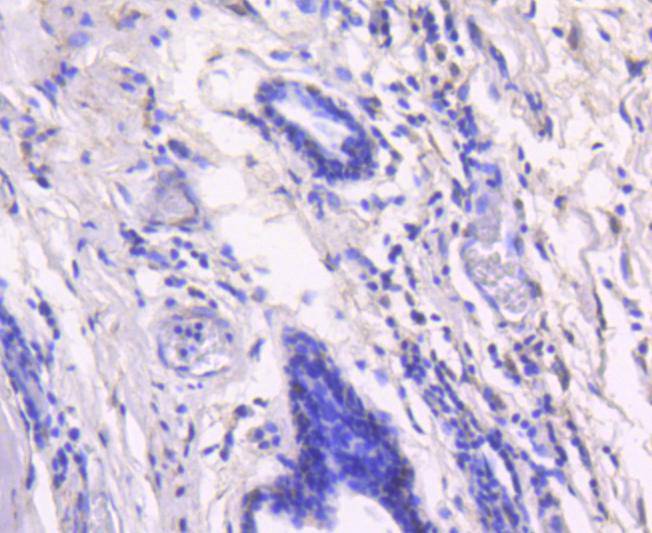
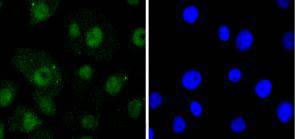
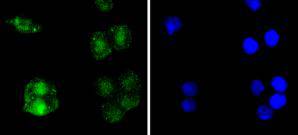
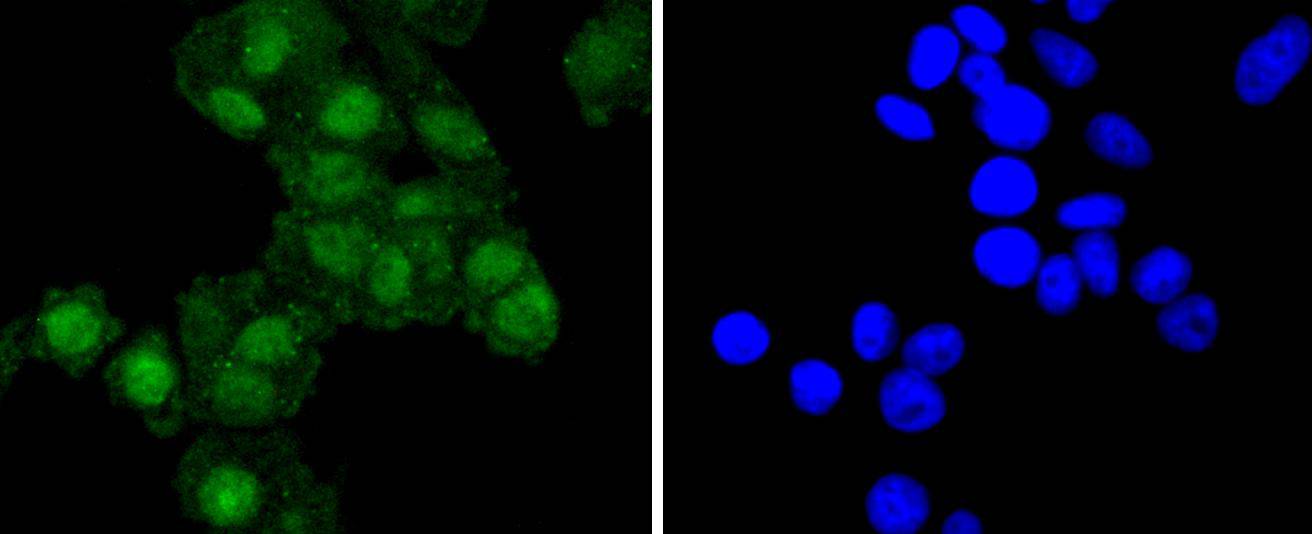
 Yes
Yes



